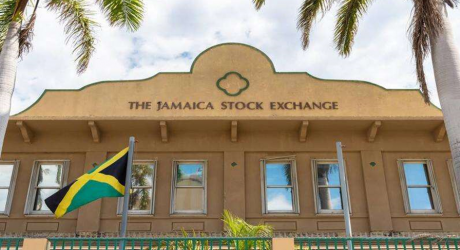Understanding Correspondent Banking
9:36 am, Mon July 25, 2016
By Dashan Hendricks
On Thursday July 21, 2016, the Government of Jamaica and the Inter-American Development Bank (IDB), signed a US$100 million loan deal “to promote financial stability through a series of reforms aimed at improving regulation and supervision in the banking, securities, pension funds and insurance sectors.”
The deal was signed without much fanfare and little attention from the media. But the importance of such a deal, if it achieves its objective, is something even the less keen among us will appreciate.
Therese Turner-Jones, General Manager for IDB’s Caribbean Country Department, was quoted as saying that, with the ensuing threats in the global financial markets, particularly as it pertains to the current de-risking threats, it was urgent to implement reforms to make Jamaica’s financial system more resilient. It means such a loan comes at a time when Jamaican banks, and indeed banks from around the region, are losing correspondent banking relationships with their counterparts in metropolitan countries. It is aimed at building the risk profile of the Jamaican financial sector and may result in less losses of this critical banking relationship.
Why many Jamaicans have not paid this matter much attention is because many do not understand the importance of correspondent banking relationships to their everyday living. Simply put, a correspondent bank is one which provides certain financial services for another financial institution. It is how commerce is transacted in today's world. For example, when an individual with an account at Bank X, does a transaction with someone who has an account at Bank Y, it is a correspondent banking relationship which allows for the settling of the transaction. Correspondent banking relationships allow for the facilitation of wire transfers and normal business transactions between clients from competing banks. On an international scale, correspondent banking relationships allow for the handling of international bank-to-bank transactions. It allows for tourists who visit Jamaica to purchase items here using their credit cards, it allows for the transfer of remittances from abroad and payments related to trade and finance.
Without it, countries would have to charter planes to fly cash around the world to pay for the imports. In Jamaica's case, imagine hiring planes to fly cash to pay for things such as oil or food, or the clothes imported for the local market. Imagine flying a plane to the various cities in the United States to pick up remittances from relatives to pay electricity bills or sending a child to school. That's the risk the country faces if local banks continue to lose correspondent banking relationships with their counterparts in foreign countries.
The relationships are being cut by banks in developed countries because of new banking rules in places such as the United States which require their regulated institutions to ensure they are not being used for money laundering or the financing of terrorism. Faced with various sanctions, these banks in the United States, instead of taking action to improve the assessment of risks and take steps to eliminate them, simply end such relationships with banks in places such as Jamaica. The banks cutting ties with their counterparts in Jamaica and the wider Caribbean argue that the region’s small size and the hefty fines they face if they are found in breach of the new are not worth the risks of clearing cheques or transferring money on behalf of regional banks.
Study
A recent study on the matter, published by the International Monetary Fund (IMF), which highlights the impact of the withdrawal of banking services on financial institutions in the Caribbean, shows that "at least 16 banks in the region, across five countries, have lost all or some of their correspondent banking relationships (CBRs), as of May 2016." In Jamaica, the National Commercial Bank (NCB) gave up its remittance business, blocked service to several cambios and stopped facilitating other transactions to ensure it does not become one of the banks to lose the services of banks in the United States. Jamaica National and Victoria Mutual, the country’s two main building societies, have reported the loss of similar service in countries in the region and the United Kingdom. In the Bahamas, the crisis has affected two of its local banks and four international banks. A Caribbean Development Bank report even pointed out that Western Union closed offices in that country. The impact is felt strongest in Belize, where only two banks now have full banking services with banks in the United States. The Belizean Foreign Minister, Wilfred Elrington, as per the Miami Herald, said his country "cannot in fact do business in U.S. currency because banks in the United States simply won’t entertain our overtures to process our documents, credit card payments, foreign payments. Banks will not deal with us.”
The IMF points out that the "so far the economic or financial stability impact" of the loss of correspondent banking relationships has been limited, "because financial institutions in affected countries have been able to find alternative arrangements." The IMF has offered the help Jamaica in its push and has even appealed to regulators in the U.S. and Europe to consider the impact of their action on banking sectors in small developing countries. Recently, IMF Managing Director Christine Lagarde said continued loss of such banking relationships, which are critical to commerce, risks marginalising small countries with small financial systems.
Lobbying
That is why regional leaders must increase the intensity of lobbying against the loss of correspondent banking relationships with regulators in the United States and Europe. The issue was the topic of discussion at the 2016 CARICOM Heads of Government Meeting in Guyana, but one still gets the feeling that not enough is being done in the face of a crisis which threatens the very existence of critical financial services. It is these financial services which allow for all the things we take for granted to function smoothly.
Imagine going to the petrol station and not being able to fill up because Petrojam could not pay for the oil it refines - not because it does not have any money but because its bank cannot find a bank to accept its money. Imagine not being able to get chicken meat for meals because Jamaica Broilers and Caribbean Broilers cannot pay for corn from the United States because US banks won't accept money from their local banks. That's the risk that is faced with the loss of correspondent banking relationships. It's a risk around which we must have a national rallying cry, increased lobbying and a push to reach out as a region to reverse this growing trend.
That is why the agreement signed by Jamaica and the IDB in recent days is one which must be hailed, but more so the push to improve the resilience of Jamaica's financial sector must be one that is urgently pursued, and the results must be such that the country can provide its reforms en bloc to American banks and have the trend of cutting correspondent banking relationships reversed.
Dashan Hendricks is RJR's Group Business Editor

9:32 am, Sat April 20, 2024

7:07 pm, Wed April 17, 2024

8:34 pm, Sat April 20, 2024








 All feeds
All feeds







